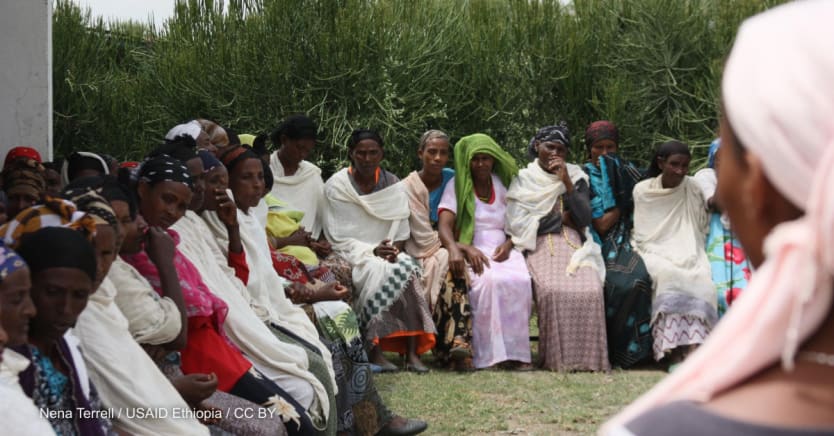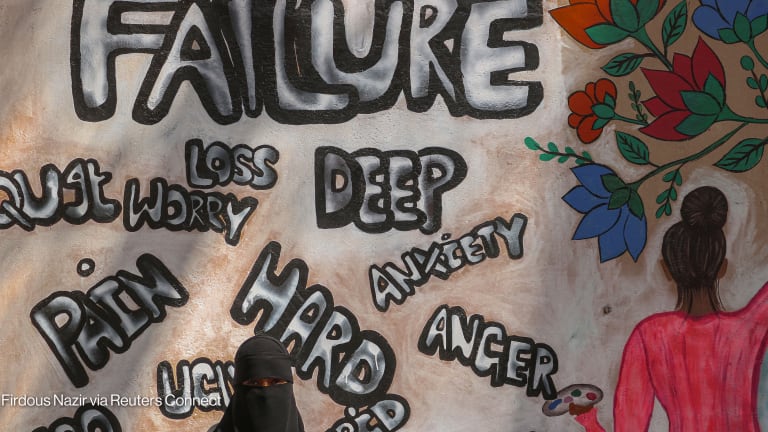
A new report highlights the gender disparities in the board composition of global health organizations, but also how significantly underrepresented women nationals from low-income countries are.
Global Health 50/50, which has been tracking how much women are represented in global health leadership since 2018, found that of 2,014 board seats across 146 global health organizations covering the nonprofit and for-profit sectors, only 814 or 40% are held by women. Only 17 or less than 1% are occupied by women in low-income countries.
According to professor Sarah Hawkes, Global Health 50/50 co-director, this year is the first time the initiative is focusing on the gender and geographic diversity of the boards of leading global health organizations. However, the report excludes United Nations agencies, whose board compositions are determined by member countries.
“The global health sector seems to be just waking up to its own role in reinforcing patterns of colonialism, imperialism, racism and abuse of power.”
— Sarah Hawkes, Global Health 50/50 co-director“Boards are often the nexus of decision-making in an organisation, and decisions made in boardrooms can have very real consequences for the health outcomes of millions of people around the world,” Hawkes told Devex over email.
“Therefore if we want to examine how to enact the kind of systemic change necessary to create more representative and effective global health organisations, we need to start by looking at the top,” she added.
The report’s findings however reveal huge underrepresentation of women from low-income countries across global health boards. In the nonprofit sector, only 1% of 1,438 board seats are held by women nationals from low-income countries, and no women from this income group are represented in the for-profit boards included in the assessment. Meanwhile, only 1 out of 123 board seats in funding organizations is held by a woman from a low-income country.
More than half of the 138 organizations the initiative has been tracking since 2018 also have not had a woman as board chair.
The report is a stark reminder of how much more needs to be done in improving gender but also geographic diversity in global health leadership. According to the report, 75% of the board seats assessed are held by nationals from high-income countries, with more than half held by nationals from the United States and the United Kingdom.
To effect real change, organizations need to first “honestly and critically examine their own role in maintaining power asymmetries,” set and publish “a clear list of reforms,” and then monitor impact, Hawkes said,
“The global health sector seems to be just waking up to its own role in reinforcing patterns of colonialism, imperialism, racism and abuse of power,” she said.
“Metrics should be developed through an inclusive and transparent process and publishing progress is crucial for holding ourselves accountable to our commitments,” she added.
Hawkes said there’s now huge pressure from social justice movements, demanding change in the current power structures in global health. Organizations now face a choice between moving along these calls for change or getting left behind.
“It’s becoming increasingly challenging to justify why leadership is so overwhelmingly dominated by people from rich countries - particularly men. The fundamental responsibility of a global health organisation is to work towards equitable health outcomes for all – and that simply won’t happen until we have boards for all,” she said, hoping the report and its statistics will serve as a wake-up call for the sector.
With very few from low-income countries represented on global health boards, Devex asked Hawkes whether it is time for a name change in the sector.
“Changing the name of our sector won’t change the structural issues at play. Instead, we should focus our energy on transforming the way that power is held. In other words, ensuring that the sector lives up to its name,” she said.









